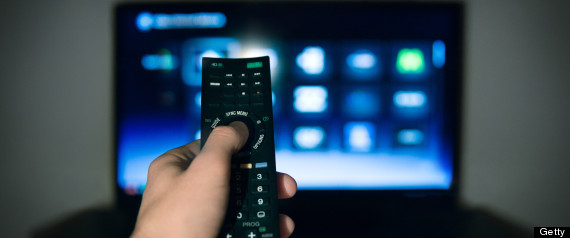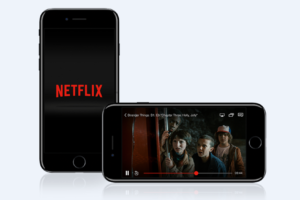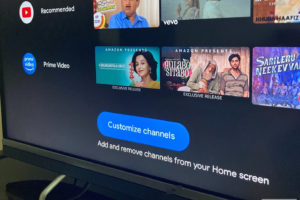After a long day’s work, you deserve to lean back, open happiness in a bottle of coke, have an overflowing bowl of popcorn and first rights to the TV remote. It’s about that time you catch-up on the latest trends, TV shows; your favorite movies or transfer news of your football teams.
But the question is: who will give you the best experience and value for your hard-earned money?
The long-standing #1 contender Multichoice with it’s DSTV digital TV network has for decades dominated the premium entertainment content space on the entire African continent. Granted, they have the content you crave for but their poor customer care and high prices have kept us looking for other better alternatives.
That’s where Netflix comes in. Launched at the beginning of 2016 across multiple regions in Africa, Netflix came on the scene with full force. Over the last two months, we’ve been experimenting with Netflix’s service (without a VPN) just to have a feel of what the video-on-demand provider has in store.
Programming and Delivery
Comparing Netflix to DSTV is like comparing oranges and tangerines. DSTV has both live TV and Video-on-demand services (with DSTV Now and Catchup) while Netflix is strictly on-demand much like YouTube.
Watching live TV is like listening to a radio station DJ playing your favorite music while you seat back and relax. The DJ curates for you the most compelling entertainment content that they believe will hit you where it hurts the most. That’s the cool thing the DJ has in common with regular TV and DSTV. Netflix on the other hand requires you to select and watch what you want to watch when you want to watch it. While that’s well and good, the experience is limited to your knowledge of what you consider the most interesting content out there.
Live TV vs On-demand content is subject to user preference. DSTV has both kinds of Programming while Netflix limits you to only Video-on-demand.
Winner: DSTV
Subscription Fees and Cost
Netflix subscription fees are unbelievably cheap. Starting at only $ 7.99 per month (about Ugx 28,000) for the basic package and $11.99(Ugx 41,000) for Premium. Netflix appeals to your budget from shallow to deep pockets. Imagine having access to almost limitless library of entertainment wherever and whenever you want to access it for a measly $7.99 per month. Bazinga!
DSTV on the other hand starts relatively cheap at ($10) Ugx 32,000 for the DSTV Access package way up to a whopping $78(Ugx 260,000) for the Premium package. Now we know Multi-choice does its best to cover all pocket sizes but DSTV’s lower tiers are relatively at par with purely Free-to-air channels or a little bit better.
Netflix on the other hand requires an active Internet plan which will eat into your monthly data costs. To stream Netflix content on the basic package, you need an Internet link with speeds of 1.5- 3.0 Mbps. Each movie of SD quality costs about 800MB of data and over 1GB for HD quality movies. That amount of data costs a whopping Ugx 20,000 — for just one movie! Buzz kill.
So even though Netflix subscription fees are way much cheaper than DSTV’s, the costs of data that you’ll incur to stream Netflix content makes DSTV much, much cheaper overall.
Winner: DSTV
Devices and Access
To watch movies or series On-demand with DSTV NOW, you need to be a DSTV Premium customer which will set you back Ugx 260,000 per month and an Explora PVR Decoder which costs a cool Ugx 575,000 one-time fee.
As far as Netflix is concerned, you don’t need to buy a Decoder or some other device to view their content. All you have to do is download the Netflix App for free on your Android, iOS device or Smart TV or you can access the service via the web using your laptop. You are required to pay a monthly subscription fee that starts from Ugx 28,000 (free for one month for new users).
Winner: Netflix
Content Variety and Quality
One of the reasons DSTV has had such a bad rap among its customers is the lack of a wide variety of content. Customers have also complained about repetitive content; the provider keeps playing certain shows over and over again. You have to be on the Premium package to get the most out of DSTV’s content.
Netflix on the other hand has a wide range of content: from blockbuster movies across various genres to documentaries and popular TV series. You’ll find most popular titles on Netflix. However, when we browsed Netflix’s catalog, we realized the provider still lacks some titles for the African region. You have to be in the U.S to access certain movies and TV series which is a big bummer.
When it comes to quality standards, both providers support SD and HD standards. Netflix’s basic package that costs $7.99 streams in SD while the standard ($9.99) and Premium ($11.99) packages stream in HD and full HD standards respectively.
Winner: Tie
The Verdict
Netflix delivers an almost unlimited library of entertainment content on your smartphone or smart TV at an affordable price. But it brings into question the eventual cost of data consumed on a continent characterised by expensive Internet data. DSTV on the other hand provides content — even though not as vast as Netflix – with only a one-time fee of a decoder and affordable monthly subscription fees. For those reasons, DSTV triumphantly emerges as the overall winner of this much contested battle of your living room entertainment space.
Don’t take our word for it though, experience both services on your own. And if you already have, let us know your experiences in the comments below.













I have used Netflix since it launched globally and found it very affordable. Although the subscription fee is fixed, my overall cost of using Netflix has varied depending on how much i watch. I have been using Smart Telecom’s bundles which cost one thousand shillings for every 500MB and was reasonably comfortable. Although Netflix advertises that you need 1.5- 3.0 Mbps internet speed, i have gotten away with even 500Kbps and the picture was tolerable except when text was being displayed which is mostly at the begining of movies. Subtitles are not affected by pixelation because it seems they run on a different feed which is rendered as web text content and not as video.
Movies series on average consumed about 600MB which implies that each episode i watch costs me approximately 1200/= in data. Movies on average consume 800MB which implies that they are costing me approximately 1600/= in data. I often find that cheaper than driving to my video shop.
I find DSTV only good when you have the premium bouquet however the price is not worth it.
@jeff interesting findings there. Smart data plan presents an affordable way of Netflixing away.